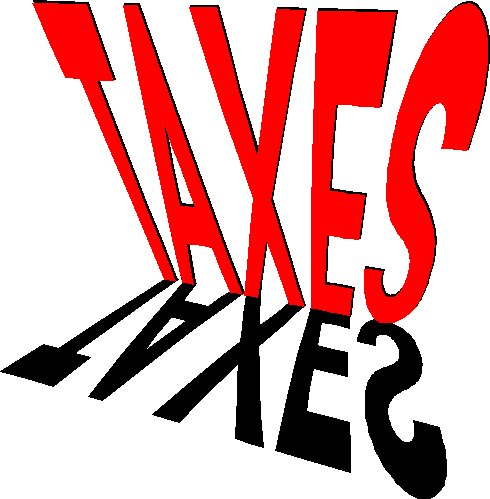[UPDATE as of 6/14/17: Instagram announced the addition of a "Paid partnership with" tag, to be initially rolled out to a select number of users. As of this update, the FTC has not yet commented on whether such a tag is sufficient to avoid using clear and conspicuous hashtags]
A few weeks ago, the federal government showed their dis-“like” over how social media influencers’ are endorsing brands and products. The Federal Trade Commission (“FTC”) sent letters to some of the most popular celebrity influencers on social media regarding the omission of certain key hashtags. Marketers got a letter, as well. Why is the FTC trying to regulate your morning Instagram scroll?
Increasingly, endorsements from a celebrity and/or social media influencer are an important tool used by advertisers to build a brand’s image and persuade consumers. Moreover, it’s understandable that any brand ambassador would like to preserve an “organic” feel when conveying their messages. But the law, governed and enforced by the FTC, states that “endorsements must be truthful and not misleading.” The FTC relies on its recently updated Guides Concerning Use of Endorsements and Testimonials in Advertising (the “Guides”) to ensure that consumer products and services are described truthfully online, and that consumers understand what they are paying for.
The Guides themselves are not law, and so there are no fines or penalties associated with them. But if advertisers don’t follow the Guides, the FTC may decide to investigate whether the practices are unfair or deceptive under the FTC Act, and may take corrective action. We've laid out the legal requirements you must follow when making sponsored endorsements of any product, service or brand on any of your social media platforms.
Basically, in order to comply with the FTC, you must clearly and conspicuously disclose your material relationship with any brand which you are endorsing via your social media. As a general rule of thumb, "when in doubt, disclose". But the following will also provide some guidance as to how and when you should disclose.
What Is An Endorsement?
According to the FTC, an endorsement means “any advertising message that consumers are likely to believe reflects the opinions, beliefs, findings, or experiences of a party other than the sponsoring advertiser, even if the views expressed by that party are identical to those of the sponsoring advertiser.” Thus, in order to be FTC compliant as the endorser of any brand’s product or service, you must ensure the following with respect to any of your endorsements:
The endorsement must reflect your honest opinion, belief, finding, or experience with respect to the product or service you are endorsing; and
You must have been a bona-fide user of the endorsed product or service at the time you made your endorsement.
Material Connections Must Be Disclosed
In addition to the foregoing requirements, when there exists a connection between the endorser and the seller of the advertised product or service that might materially affect the weight or credibility of the endorsement, that connection must be fully disclosed. In other words, your endorsement of any product or service is subject to enforcement if the brand/advertiser, or someone working for the brand/advertiser, pays you, gives you something else of value or provides some other incentive to mention their product on any of your social media.
Required Disclosures Must Be Clear and Conspicuous
Material relationships between brand and endorser on social media must be clearly and conspicuously disclosed. The FTC has provided specific guidance as to how to address these disclosures on various social media platforms, as follows:
1. On Twitter, Facebook and Instagram: While there are no specific rules as to how the disclosure needs to be stated, the FTC has taken a firm stance that the limited 140-character space available on Twitter does not change the need to disclose in an endorsement tweet. According to the FTC, “the words ‘Sponsored’ and ‘Promotion’ use only 9 characters; ‘Paid ad’ only uses 7 characters; and starting a tweet with ‘Ad:’ or ‘#ad’ takes only 3 characters” – each of these would likely be effective disclosures, per the Guides. Also note that the disclosure must be made on each and every tweet you make, even if you are tweeting the same message consecutively (i.e. minutes or even seconds apart) or if the tweet is broken up into several parts. The same rules apply to Facebook and Instagram posts, with the caveat that, because you are not limited in space on these alternative platforms, you should err on the side of making your disclosure longer and more obvious, rather than falling back on the same abbreviated text that would be appropriate for Twitter.
2. Contests & Sweepstakes Rules Need Disclosure: If you are promoting/sponsoring a contest on behalf of a brand, a disclosure is also required. Moreover, the responsibility falls on you (e.g. the contest sponsor) to make sure people entering the contest also make the disclosure if the contest requires them to review or promote a product or service. Again, the key is whether the gift would affect the “weight or credibility” of an endorsement, but determining where to set the bar is difficult, so it’s always safer to disclose. For example, if you as a brand ambassador are calling upon your social media followers to tweet about or review the brand online in exchange for some type of gift or reward, then your call to action must also require that your followers disclose the contest/sweepstakes. Displaying a hashtag like “#contest” or “#sweepstakes” should be sufficient as a disclosure; however, using something like “#BrandXYZ_Rocks” or merely the abbreviated “#sweeps” is not sufficient because the relationship is not deemed obvious enough and people might not understand what the disclosure means.
3. Video Disclosures Must Be Made Early And Often: For any YouTube or other sponsored online video (e.g. Snapchat, Vine, etc.), it’s not enough to have a disclaimer on the details page. The FTC has stressed that proximity and placement are two determinative factors as to the conspicuousness of the disclosure. Therefore, your disclosure must be made at the beginning of the video and preferably repeated multiple times for longer-form pieces. Similarly, streaming video, such as Periscope or when making a video/mobile game review as a sponsor/ambassador of a gaming company, also needs disclosure throughout the video (e.g. stating throughout your videos or live streams, “Sponsored by [name of the company]").
4. Facebook “Likes” Might Require Disclosure: The FTC has not clearly addressed this specific issue yet, however, you should still stick to the same general rule of clearly disclosing if you are acting as a brand ambassador/sponsor to incentivize your followers to “Like” a brand on Facebook.
Conclusion
Whenever you are acting as a Brand Ambassador or Sponsor of any product or service (in the US or elsewhere), you must ensure that people get the information they need to evaluate your sponsored statements. If you were given something for free or paid to promote a product or service, state as much using clear and unambiguous language. Consumers (i.e. your social media followers) should be able to notice the disclosure easily and should not have to look for it. And if your disclosures are hard to find, tough to understand, or buried in unrelated details, or if other elements in your ad or message obscure or distract from the disclosures, they don’t meet the “clear and conspicuous” standard and you could find yourself the subject of an action from the FTC.
If you are an influencer or a marketer, and you have questions about FTC compliance or any other issue affecting your digital marketing efforts, please contact AltView Law Group, LLP for a free consultation at (310) 230-5580 or jason@altviewlawgroup.com.







